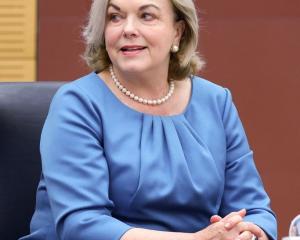The desperate sadness of suicide touches many in one way or another in New Zealand.
The more than 500 self-inflicted deaths a year bring heartbreak to those close to the person who died, and the ripples flow out in our small and close-knit society.
New Zealand has among the strictest, albeit confusing, laws in the world surrounding the reporting of suicide.
The media is not supposed to say a death is a suspected suicide, even when that is obvious.
The circumlocution of ''no suspicious circumstances'' have become code words.
Information on even high-profile deaths are skirted around through double-speak, which helps make suicide often a taboo subject.
In the meantime, suicide numbers remain high, with youth rates among the highest anywhere.
As is widely acknowledged, the all-too-often silent epidemic needs confronting, and more openness to be tackled more effectively.
As Casper Suicide Prevention operations manager Leteisha Cornes has said, restrictions on the reporting of a death as a suicide do not give any opportunity for frank discussion on the topic.
The Law Commission was tasked with examining our laws in this area and this week published its conclusions.
It argues the law should be clarified and the media should be able to report a death as a ''suspected suicide'' if the facts support that, but that outlets should hold off announcing the death is self-inflicted until a coroner has ruled on the matter.
Crucially, and correctly, the commission maintains the method by which somebody ends their life should not be reported.
Although this restriction conflicts with principles of free speech, the recommendations have been welcomed by Media Freedom Committee chairman Tim Murphy.
We agree that while such principles are important they are not absolute. Sometimes they conflict with other principles, and judgement calls are required.
As Mr Murphy said, the commission has struck a balance between openness and care. Evidence of copycat suicides among vulnerable people are sufficient for restrictions to remain in place.
However, Casper believes the commission should have gone much further and too much weight has been given to research which purported to establish a causal link between media reports and suicide.
Under proposed changes, families would still be unable to tell their stories out of their desire to prevent further suicides.
And there would still be the fiction of ''suspected'' suicide even if it was clearly fact.
In reality, families would still be unable to state in funeral notices a death was a suicide.
They would still have to deal with the painful realities while dealing with the shock and thoughtless comments of others unaware of the manner of death.
The urgent exemption provision from the rules via the chief coroner is seen as impractical.
No doubt, some internet sites and often social media will continue to ignore any restrictions, although sites available to the public are supposed to abide by the legislation.
The commission recognised legislation on reporting of overseas suicides could well be futile, given the internet's reach.
This matter could, in part, be covered by voluntary standards which the commission says should be developed.
The recommendations have received initial encouraging responses from relevant ministers.
The Government has until September to respond.
It should then move with fresh legislation and take the recommended steps, which are relatively conservative.
A little further down the track, it will be worth reviewing the results and considering further changes.
As Chief Coroner Judge Neil MacLean said this week in advance of a public meeting in Otago about suicide: ''I have advocated a gentle opening up of suicide reporting in New Zealand. However, it is vital that this is done cautiously and responsibly.''
Where to get help
Lifeline: 0800 543-354.
Depression Helpline (8am-midnight): 0800 111-757.
Suicide Crisis Helpline: 0508 828-865.
Youthline: 0800 376-633, free text 234 or email talk@youthline.co.nz.
What's Up (for 5 to 18-year-olds; 1pm-11pm): 0800 942-8787.
Kidsline (for children 14 and under; 4pm-6pm weekdays): 0800 543-754.
• If it is an emergency, call 111.












